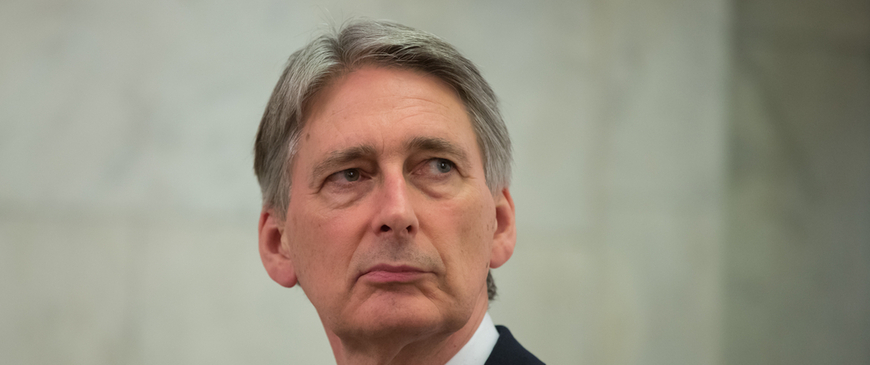
Autumn Statement 2016: How will Brexit affect the budget?
‘Brexit’ will be added to the Collins dictionary this year, and one Twitter wag suggested that the dictionary should tweak Theresa May by making the following entry: ‘Brexit (n): Brexit’. Just as May is keeping her powder dry, so too is Phillip Hammond, who made his first budget decisions as Chancellor today in the Autumn Statement (the UK’s biannual budget review).
The economy has held up well after the Brexit vote — far better than most forecasts, including ours. So Hammond was able to avoid any big decisions about stimulus or retrenchment. He promised an extra £4.6 billion a year for housing, infrastructure, science, research and development — but that only raises public investment by 0.25 per cent of GDP and will thus do little to boost Britain’s laggardly productivity, which Brexit will make worse. Hammond did not announce any further cuts to welfare. Any tax changes will be minor.
More interesting were the estimates of the government’s independent fiscal watchdog, the Office of Budget Responsibility (OBR), of the impact of Brexit. Brexiters have had it out for people who are insufficiently positive about leaving the EU, with Bank of England governor Mark Carney and Hammond himself being their main targets. The OBR is next: it is more optimistic than independent forecasters about growth in 2017, but still projects growth to slow to 1.4 per cent, down from 2.2 per cent in its March forecast. (The independent consensus forecast is lower, at 1.1 per cent.) The OBR believes that growth will bounce back to 2.1 per cent in 2019, which seems optimistic, given that the UK will be formally leaving the EU that year. But it stresses the uncertainty in its forecast given that the outcome of the negotiations is unknowable, saying “we have been given no information regarding the government’s goals or expectations for the negotiations that is not already in the public domain”.
The OBR takes the common sense view that Brexit will lower trade flows, lower investment and lower net immigration, and hence lower potential output. But by how much? Having already reduced its estimate of the potential growth rate of the economy from 2.4 to 2.2 per cent in March, it now knocks another 0.2 per cent off potential growth, which suggests that it thinks the long-term costs of Brexit will be significant. A small reduction in annual growth will compound up into a bigger income shortfall over time. I plugged in the numbers, and the OBR thinks that the economy will be 3.2 per cent smaller in 2030 than would have been the case had the referendum gone the other way. This is more optimistic than the Treasury’s pre-referendum forecast, but in line with other estimates.
In the long-term then, Brexit means lower spending or higher taxes. The key political question is who will be at the receiving end of these measures. It seems likely that people on lower-incomes will suffer further welfare and public services cuts in the future, given the Conservative drive to reduce the size of the state.
John Springford is director of research at the Centre for European Reform.
